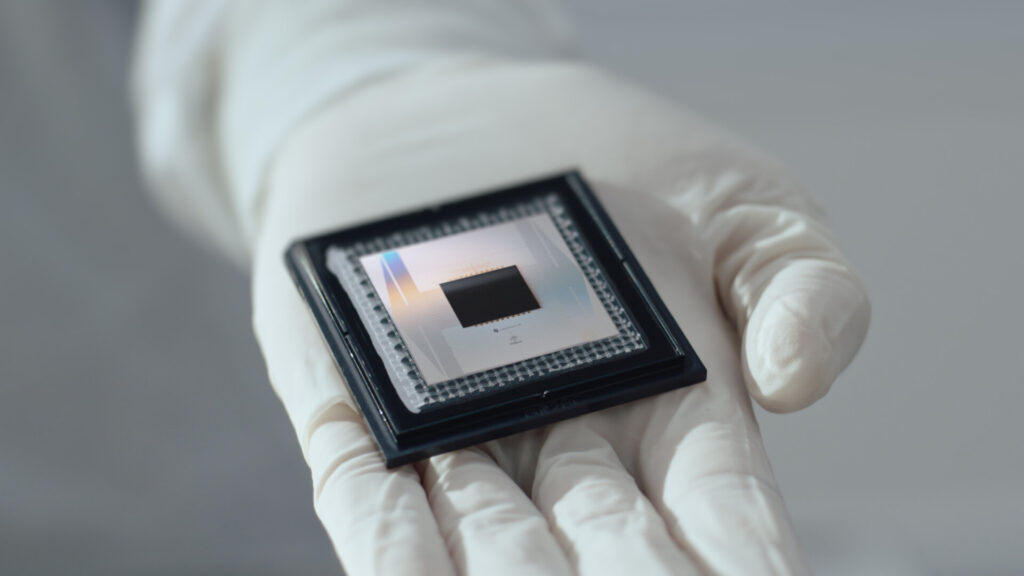Google's Willow Quantum Chip Transforms Computing Power
Explore how Google's Willow quantum chip is set to revolutionize computing, solving complex problems in minutes that would take classical computers eons.

Key Points
- Google
's Willow quantum chip can solve problems in five minutes that would take classical supercomputers 10 septillion years.
- The chip represents a significant advancement in quantum error correction, reducing errors as more qubits are added.
- While still experimental, Willow shows promise for practical applications in drug discovery and artificial intelligence in the coming years.
In a groundbreaking announcement, Google has revealed its latest quantum computing chip, named Willow, which has the potential to redefine the landscape of computational power. The claim? Willow can solve complex mathematical problems in a mere five minutes—a task that would take a classical supercomputer an unfathomable 10 septillion years. This astonishing feat showcases the immense capabilities of quantum technology that go beyond the scope of today’s most advanced classical systems.

What Makes Willow Unique?
The Willow chip is not just remarkable for its speed; it also displays significant advancements in quantum error correction. In traditional quantum computing, as the number of qubits increases, so too do the error rates, which can compromise calculations. However, Google has made strides in overcoming this hurdle by developing a system where the error rate actually decreases as more qubits are incorporated. This crucial development represents a major milestone that researchers have chased for almost three decades.
Within the realm of quantum mechanics, qubits can exist in multiple states simultaneously—an ability that essentially allows quantum computers to perform many calculations at once. In contrast, classical computers are limited to processing bits that represent either a 0 or a 1. This difference highlights the potential for quantum technology to tackle tasks that are currently unimaginable, from optimizing drug discovery to enhancing battery performance for electric vehicles.
The Broader Implications of Quantum Computing
While Google's Willow chip is currently positioned as an experimental device, the implications of its performance could reverberate through various fields. For instance, quantum computing holds the promise of drastically accelerating the computational processes required for pharmaceutical development, thereby reshaping how new medications are discovered and tested. This ability to expedite the experimental phase could lead to significant breakthroughs in medical science that have long eluded researchers.
Moreover, advancements in quantum computing are expected to impact artificial intelligence (AI) significantly. As Hartmut Neven, head of Google Quantum AI, noted, "Quantum computation will be indispensable for collecting training data that's inaccessible to classical machines". This suggests that the future of AI could witness enhanced capabilities for interpreting complex datasets, ultimately leading to better outcomes in various applications.
Challenges and Future Prospects
Despite these impressive advancements, it's essential to approach the excitement surrounding quantum computing with a balanced view. Currently, quantum devices, including Willow, remain largely experimental and are not yet ready for widespread commercial application. Neven himself indicated that practical uses may still be several years away, with estimates suggesting that it could take between three to five years before we see operational quantum computers that can execute complex tasks reliably.
Moreover, the rapid development of quantum computing raises significant security concerns. The potential for these powerful machines to break existing encryption methods could compromise data security on a monumental scale. As Charina Chou, Google's director of quantum operations, stated, "Security experts have been working on this, and they’ve had ample time over the last many years to really figure out what the right standards should be". This proactive approach is crucial for ensuring that as we advance technologically, we also safeguard sensitive information.
A Quantum Leap Forward
The journey of quantum computing is still unfolding, and Google’s Willow chip is an extraordinary step forward in this exciting domain. The prospect of exploring the vast capabilities of quantum technology—where problems can be solved exponentially faster than ever before—sparks curiosity and optimism across numerous fields.
With investments flowing in from governments and tech giants alike, we stand at the brink of a quantum revolution that could reshape how we approach complex problem-solving. As we sharpen our focus on creating practical applications, the future looks promising. Google’s Willow chip exemplifies the strides we are making toward harnessing the power of quantum mechanics, paving the way for a new era of computing.


